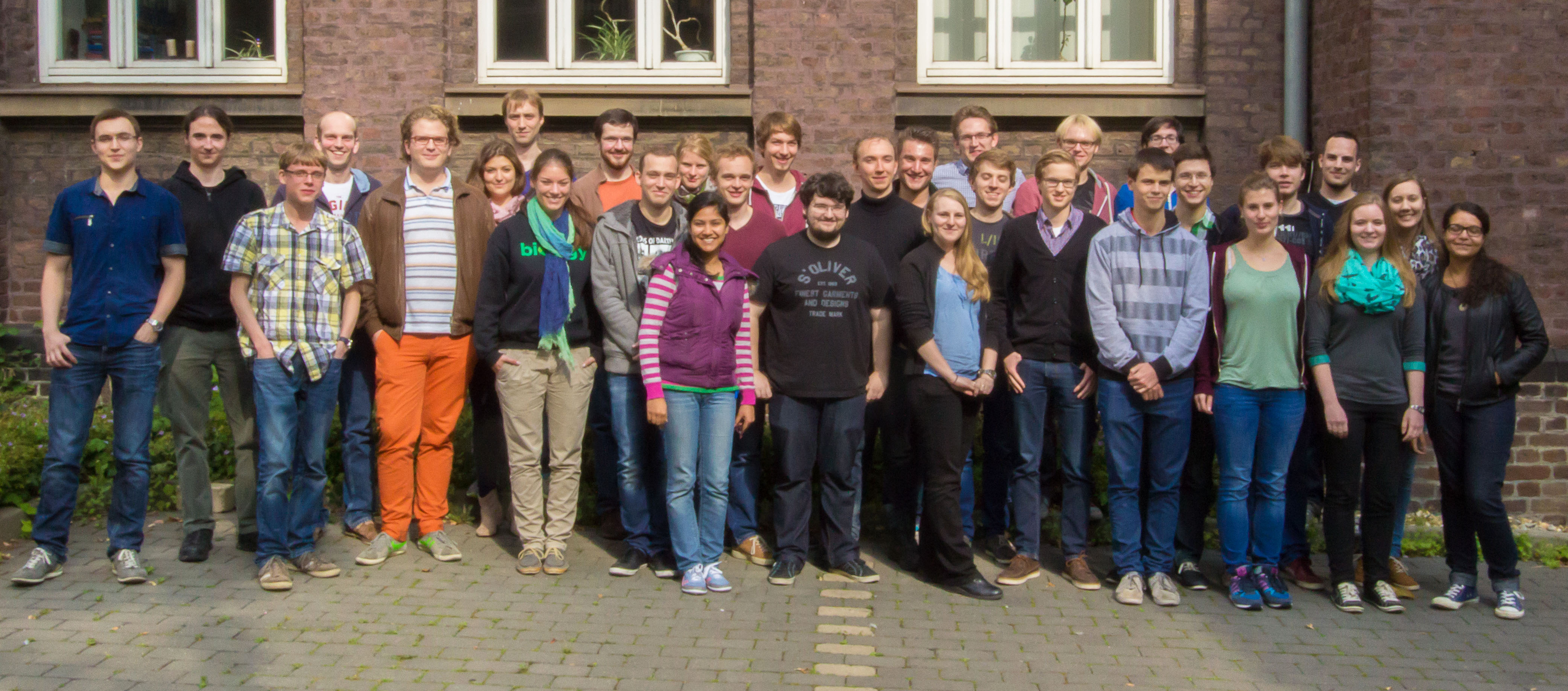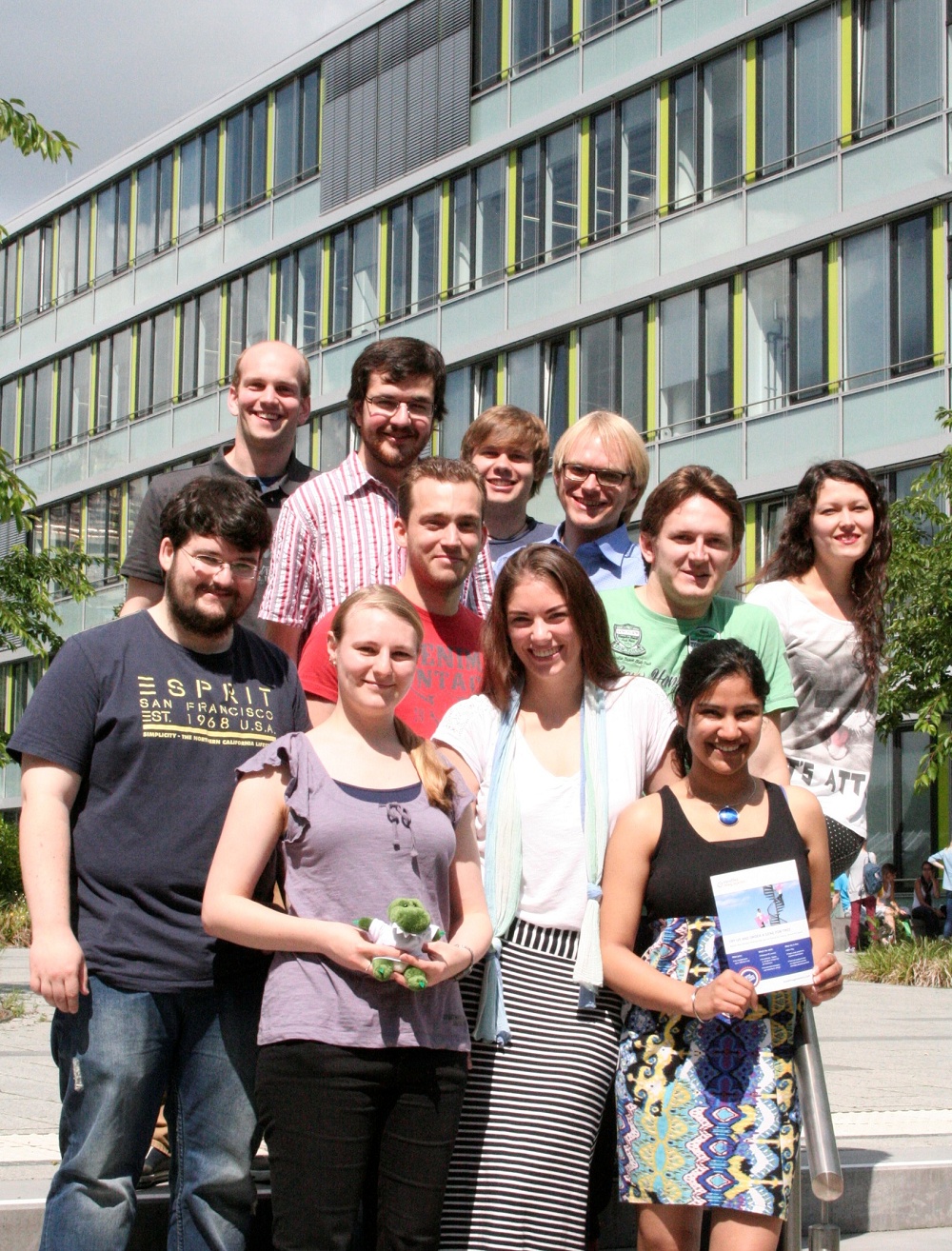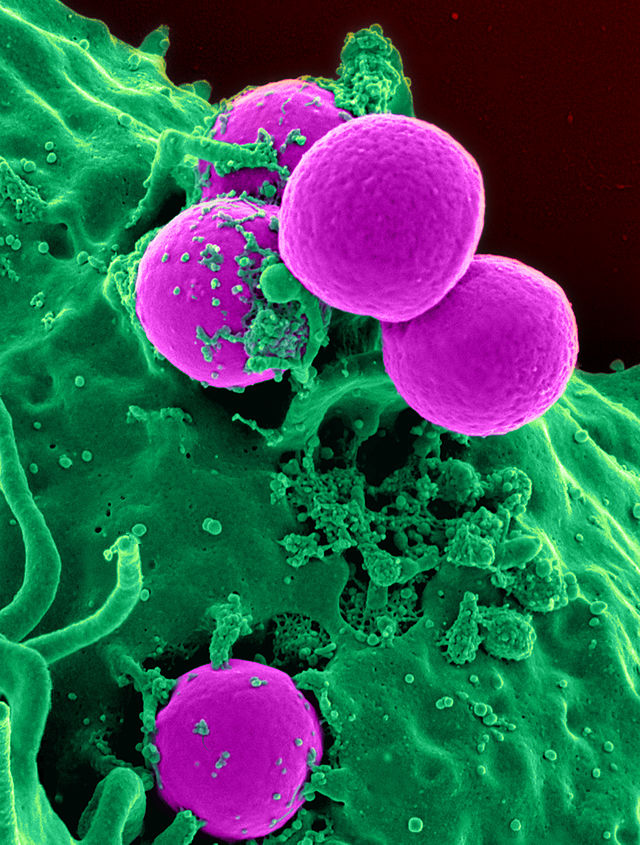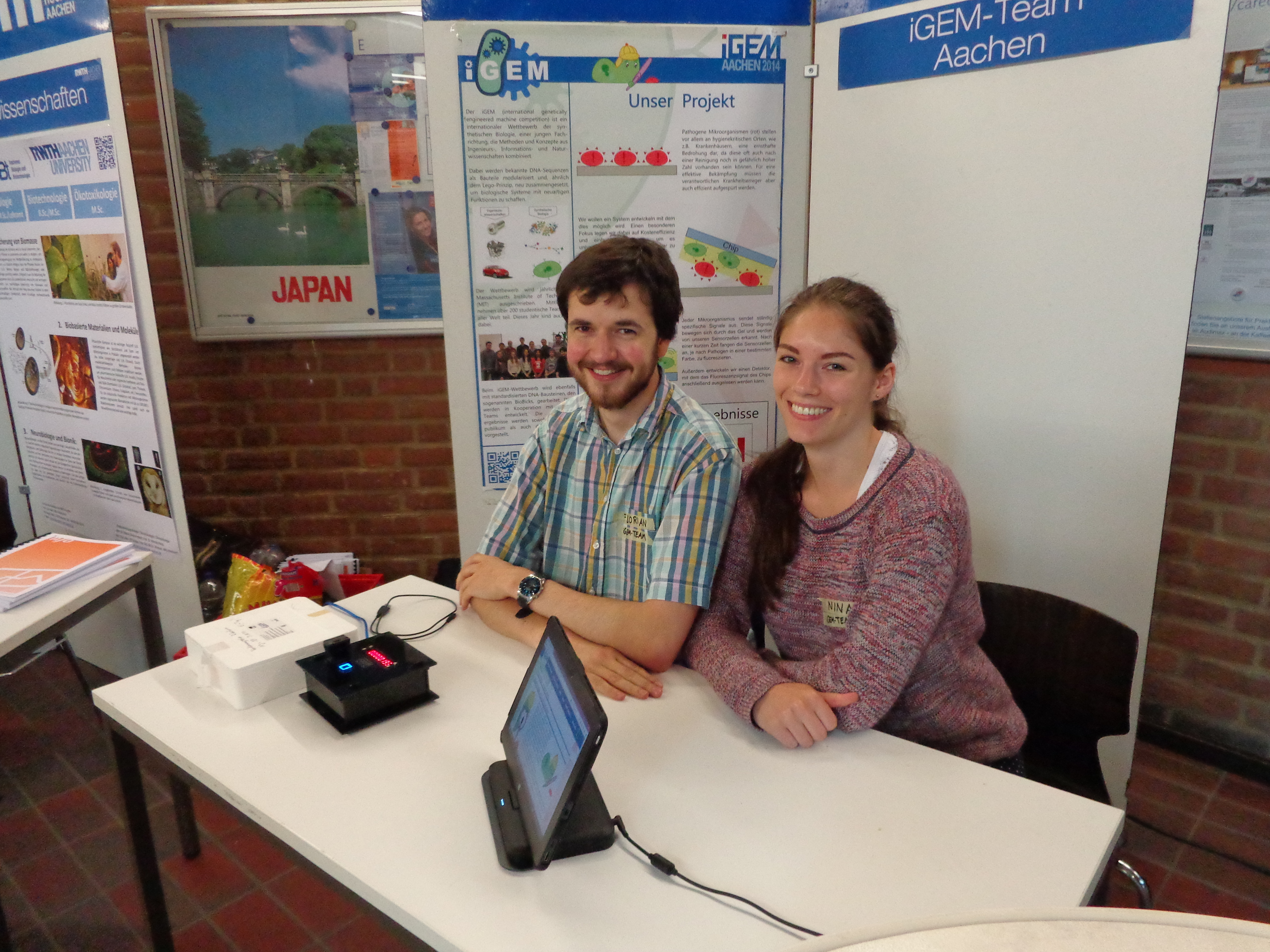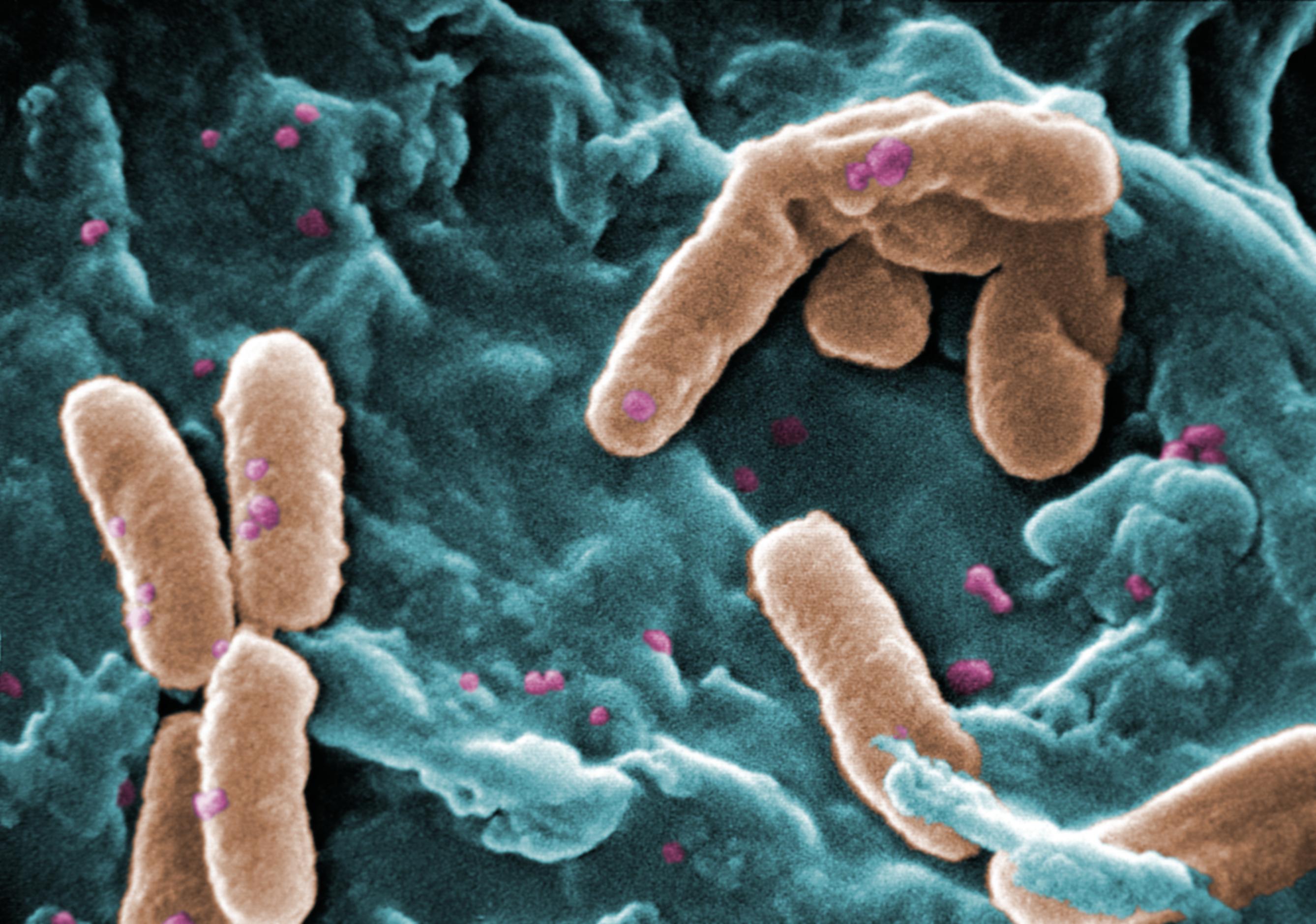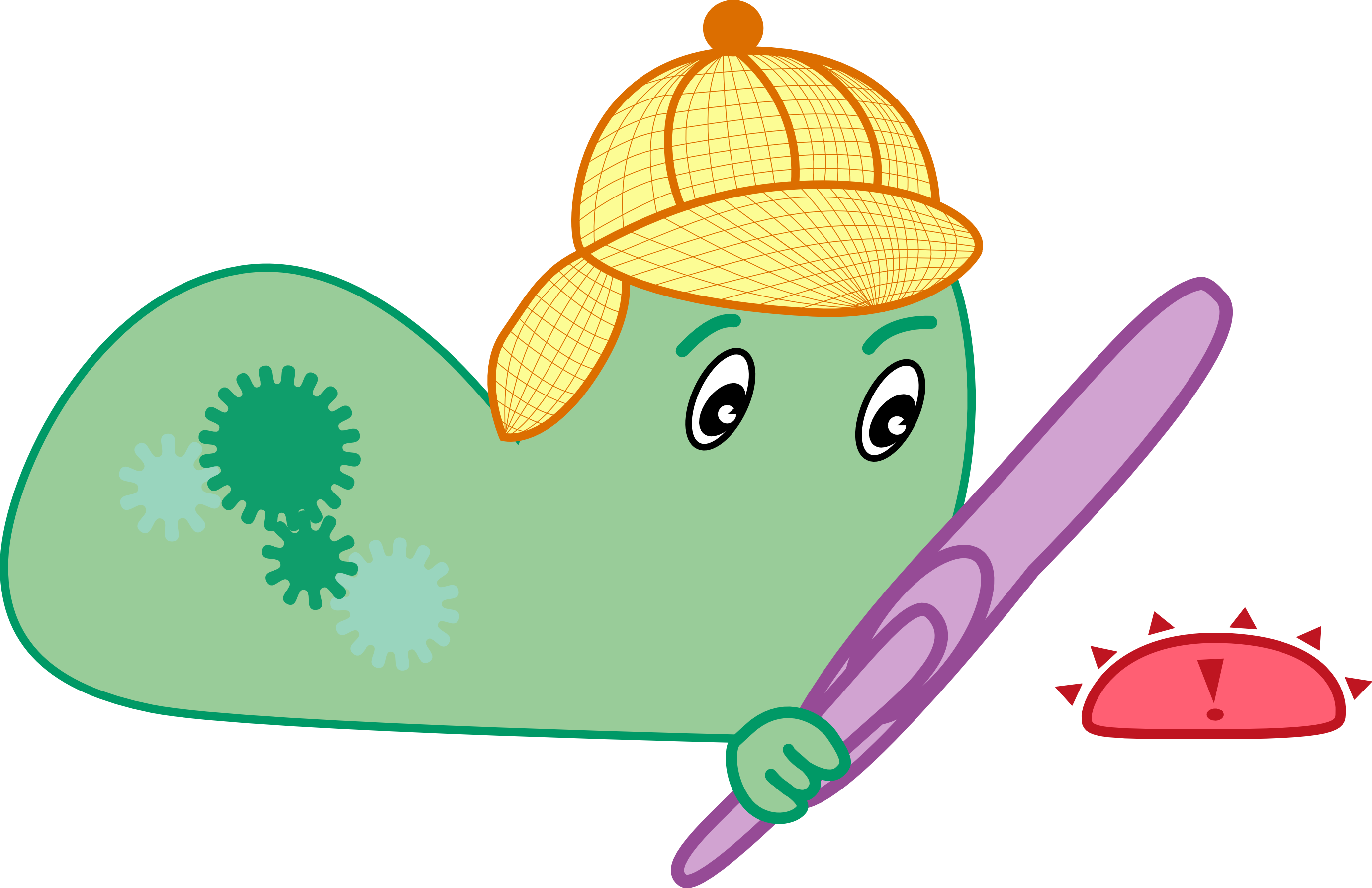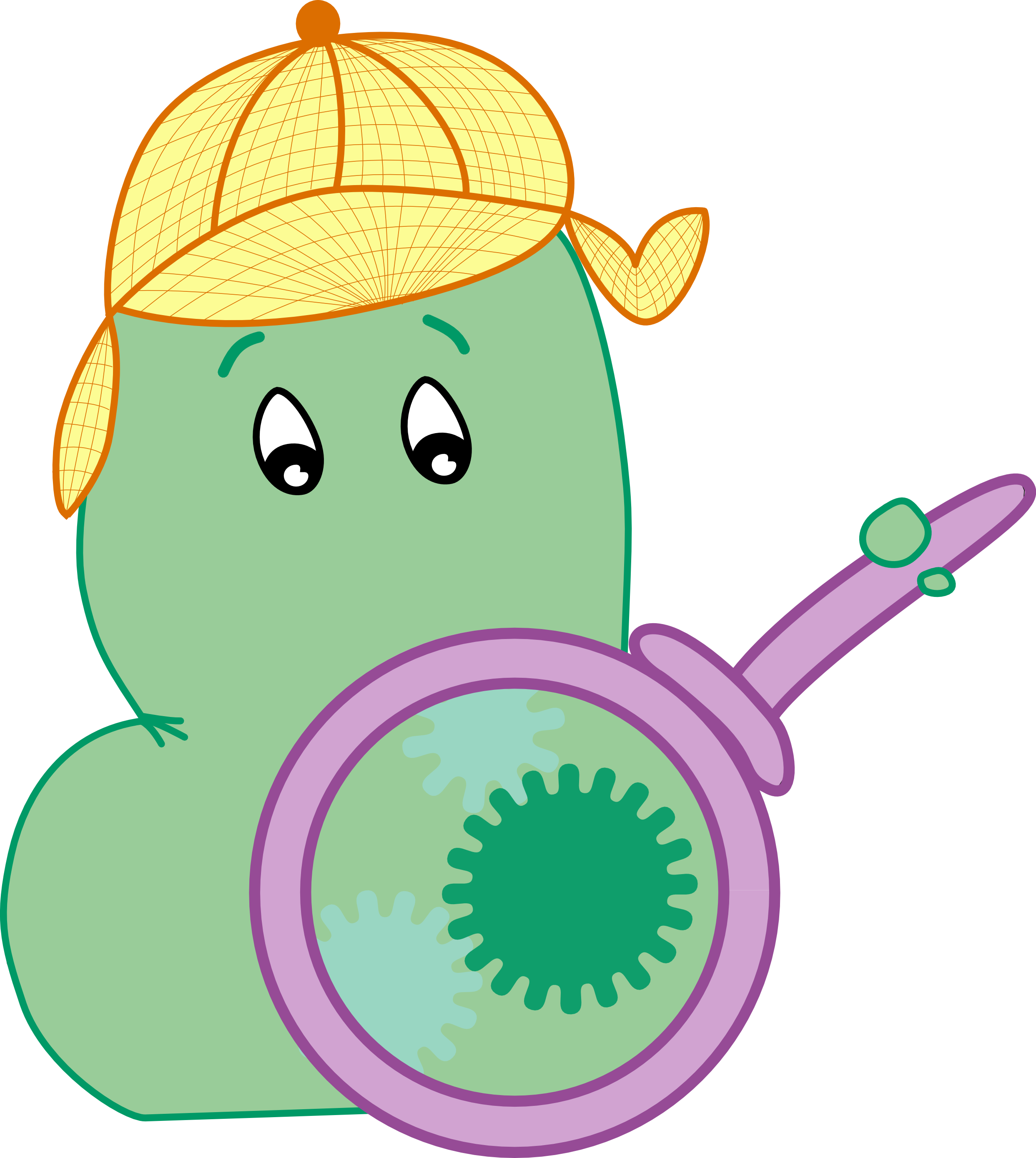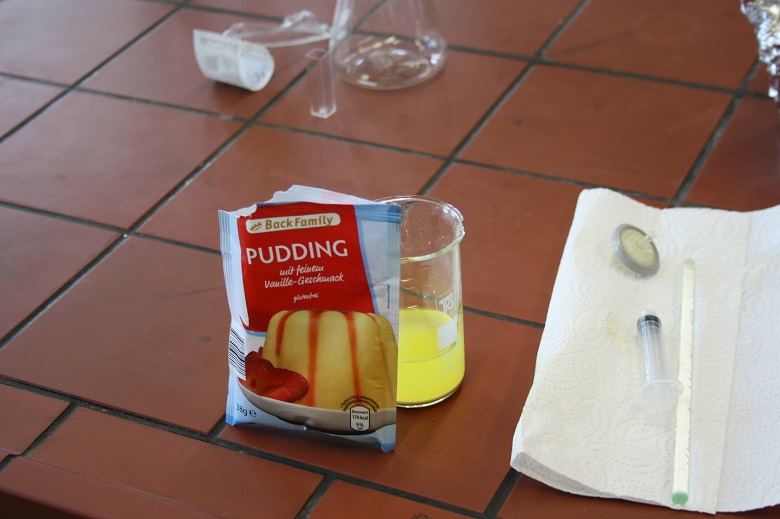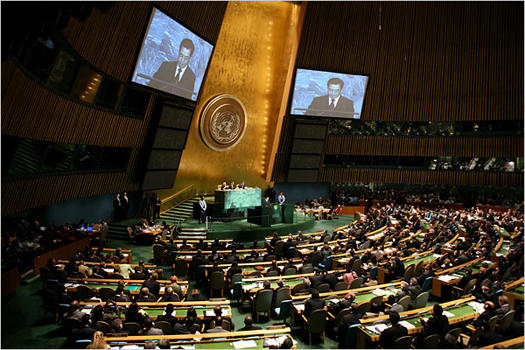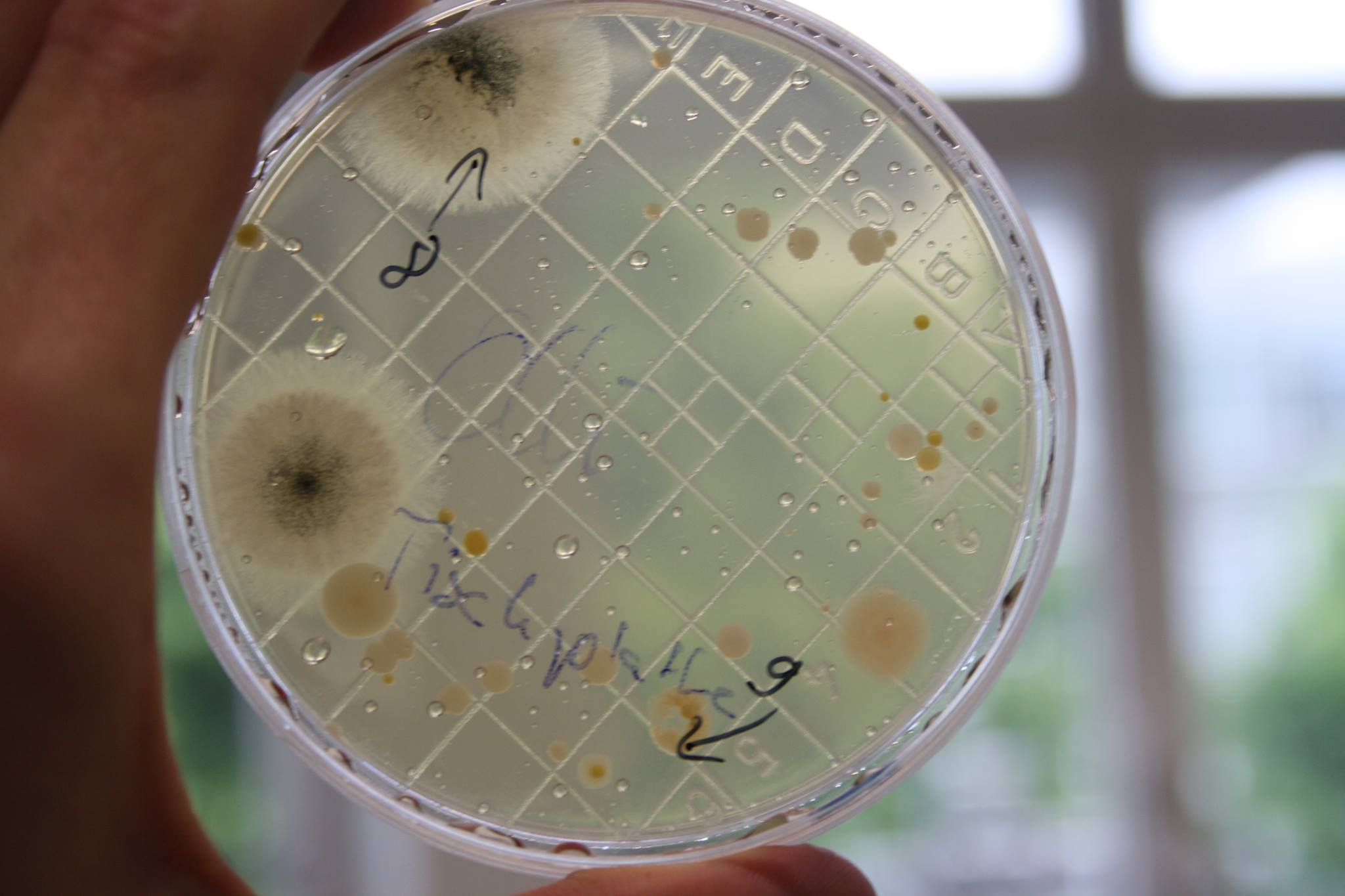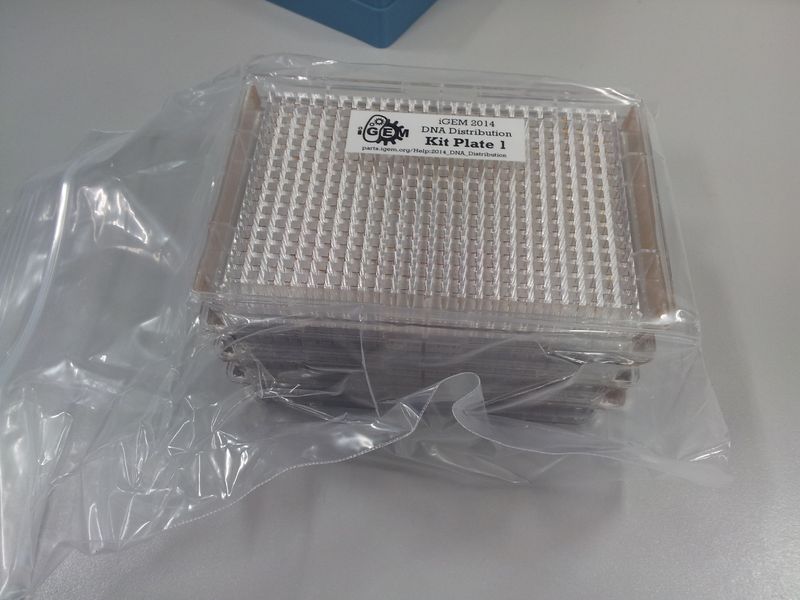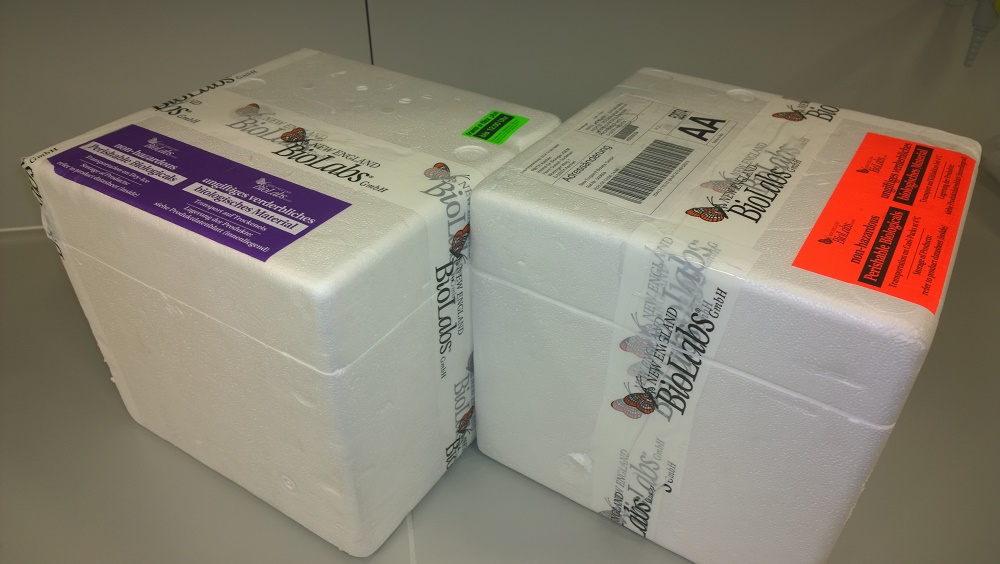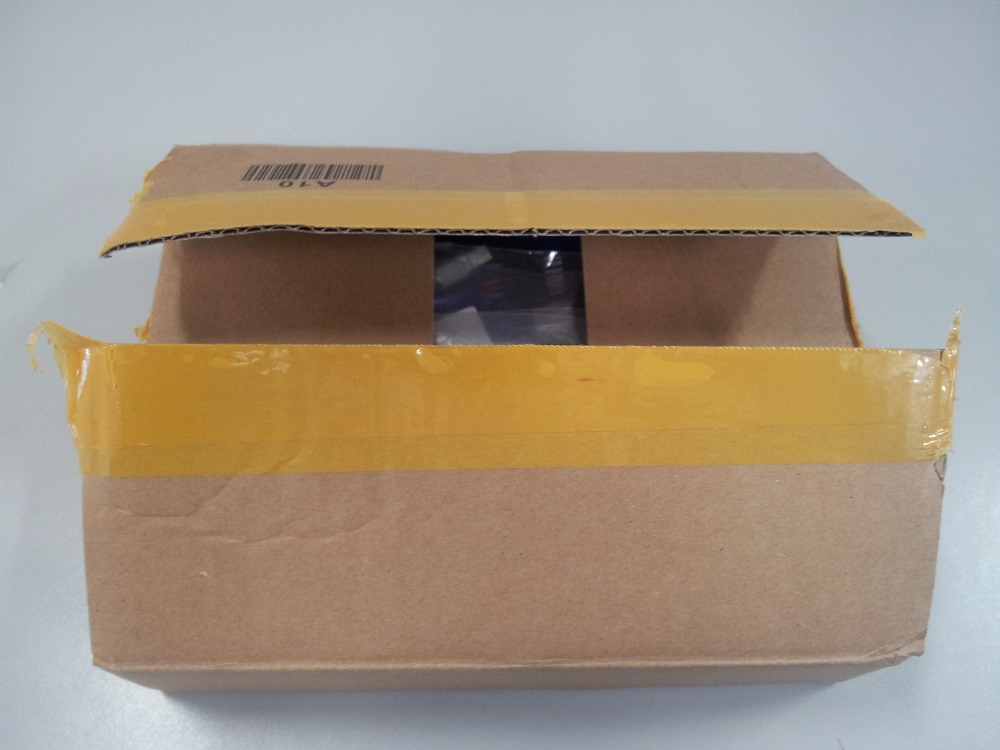Team:Aachen/Blog
From 2014.igem.org
(→Blog #1 - The opening) |
|||
| Line 24: | Line 24: | ||
[[Image:Aachen_14-07-16_GruppenbildEurofins.jpg|center|300px]] | [[Image:Aachen_14-07-16_GruppenbildEurofins.jpg|center|300px]] | ||
| + | |||
{{Team:Aachen/BlockSeparator}} | {{Team:Aachen/BlockSeparator}} | ||
| Line 34: | Line 35: | ||
<html>It is not the big pharma companies that will develop the desperately needed new generation of antibiotics that can even cope with multi-resistant bacteria such as MRSA. Instead, some smaller companies who never gave up researching this field are now future market leaders. As the German business news magazine <a href="http://www.wiwo.de/technologie/forschung/wirkungslose-antibiotika-krankenhaeuser-als-sammelbecken-von-multiresistenten-keimen/10076108-2.html">Wirtschaftswoche</a> reported this June, it is companies like the British-Swedish Astra Zeneca or Hoffmann-La Roche spin off Basilea that are now in a leading position.</html> | <html>It is not the big pharma companies that will develop the desperately needed new generation of antibiotics that can even cope with multi-resistant bacteria such as MRSA. Instead, some smaller companies who never gave up researching this field are now future market leaders. As the German business news magazine <a href="http://www.wiwo.de/technologie/forschung/wirkungslose-antibiotika-krankenhaeuser-als-sammelbecken-von-multiresistenten-keimen/10076108-2.html">Wirtschaftswoche</a> reported this June, it is companies like the British-Swedish Astra Zeneca or Hoffmann-La Roche spin off Basilea that are now in a leading position.</html> | ||
[https://2014.igem.org/Team:Aachen/Blog/14-07-15-01 Read more...] | [https://2014.igem.org/Team:Aachen/Blog/14-07-15-01 Read more...] | ||
| + | |||
{{Team:Aachen/BlockSeparator}} | {{Team:Aachen/BlockSeparator}} | ||
| Line 42: | Line 44: | ||
{{Team:Aachen/FigureFloat|Aachen_mrsa.jpg|width=200px|left|title=SEM of a human immune cell ingesting MRSA|subtitle=Picture by NIAID.}} | {{Team:Aachen/FigureFloat|Aachen_mrsa.jpg|width=200px|left|title=SEM of a human immune cell ingesting MRSA|subtitle=Picture by NIAID.}} | ||
<html>In their article <a href="http://www.wiwo.de/technologie/forschung/wirkungslose-antibiotika-krankenhaeuser-als-sammelbecken-von-multiresistenten-keimen/10076108-2.html">Noneffective Antibiotics</a> published in June, the German business news magazine Wirtschaftswoche explains it as follows: Antibiotics are the natural weapon of molds or soil microbes against competing bacterial growth. These bacteria under siege in turn counterattack with resistances: attack and defense – the natural course of evolution. Thus it was only natural, too, that since the first human use of penicillin and co., pathogens have developed strategies in order to escape the antibiotics’ effect albeit these drugs are quite insidious weapons.</html> [https://2014.igem.org/Team:Aachen/Blog/14-07-14-01 Read more...] | <html>In their article <a href="http://www.wiwo.de/technologie/forschung/wirkungslose-antibiotika-krankenhaeuser-als-sammelbecken-von-multiresistenten-keimen/10076108-2.html">Noneffective Antibiotics</a> published in June, the German business news magazine Wirtschaftswoche explains it as follows: Antibiotics are the natural weapon of molds or soil microbes against competing bacterial growth. These bacteria under siege in turn counterattack with resistances: attack and defense – the natural course of evolution. Thus it was only natural, too, that since the first human use of penicillin and co., pathogens have developed strategies in order to escape the antibiotics’ effect albeit these drugs are quite insidious weapons.</html> [https://2014.igem.org/Team:Aachen/Blog/14-07-14-01 Read more...] | ||
| + | |||
{{Team:Aachen/BlockSeparator}} | {{Team:Aachen/BlockSeparator}} | ||
| Line 70: | Line 73: | ||
{{Team:Aachen/FigureFloat|Aachen_SEM_of_Pseudomonas_aeruginosa.jpg|width=400px|title= SEM of ''Pseudomonas aeruginosa''|subtitle=Picture by Janice Haney Carr.}} | {{Team:Aachen/FigureFloat|Aachen_SEM_of_Pseudomonas_aeruginosa.jpg|width=400px|title= SEM of ''Pseudomonas aeruginosa''|subtitle=Picture by Janice Haney Carr.}} | ||
<html>Are we soon going to be dying of pneumonia again? It is almost unimaginable, but the danger that our antibiotics will soon fail against plagues thought to be conquered a long time ago, is eminent. In fact, the situation has grown very acute. The all-purpose weapon antibiotic is on the verge of losing its vigor since many pathogens, such as the pneumonia causing bacterium <i>Pseudomonas aeruginosa</i> , have become resistant. Experts of the World Health Organization (WHO) have already raised a loud alarm: In their recently published first <a href="http://www.who.int/drugresistance/documents/surveillancereport/en/" title="WHO Antimicrobial resistance: global report on surveillance 2014" target="_blank">global resistance report</a>, they are drawing a rather apocalyptic picture. If nothing is done, doctors soon might not be able to do anything but stand helplessly next to their patients while they are dying from nowadays easily curable diseases or even smallest wound infections.</html> [https://2014.igem.org/Team:Aachen/Blog/14-06-23-01 Read more...] | <html>Are we soon going to be dying of pneumonia again? It is almost unimaginable, but the danger that our antibiotics will soon fail against plagues thought to be conquered a long time ago, is eminent. In fact, the situation has grown very acute. The all-purpose weapon antibiotic is on the verge of losing its vigor since many pathogens, such as the pneumonia causing bacterium <i>Pseudomonas aeruginosa</i> , have become resistant. Experts of the World Health Organization (WHO) have already raised a loud alarm: In their recently published first <a href="http://www.who.int/drugresistance/documents/surveillancereport/en/" title="WHO Antimicrobial resistance: global report on surveillance 2014" target="_blank">global resistance report</a>, they are drawing a rather apocalyptic picture. If nothing is done, doctors soon might not be able to do anything but stand helplessly next to their patients while they are dying from nowadays easily curable diseases or even smallest wound infections.</html> [https://2014.igem.org/Team:Aachen/Blog/14-06-23-01 Read more...] | ||
| + | |||
{{Team:Aachen/BlockSeparator}} | {{Team:Aachen/BlockSeparator}} | ||
| Line 81: | Line 85: | ||
To give interested students some overview of how they can get involved in synthetic biology, Vera, Florian, Ansgar and Björn gave short presentations about each university program at RWTH represented in our team. [https://2014.igem.org/Team:Aachen/Blog/14-06-12-01 Read more...] | To give interested students some overview of how they can get involved in synthetic biology, Vera, Florian, Ansgar and Björn gave short presentations about each university program at RWTH represented in our team. [https://2014.igem.org/Team:Aachen/Blog/14-06-12-01 Read more...] | ||
| + | |||
{{Team:Aachen/BlockSeparator}} | {{Team:Aachen/BlockSeparator}} | ||
| Line 90: | Line 95: | ||
[[File:Cellock_stehend.png|center|300px|frameless]] | [[File:Cellock_stehend.png|center|300px|frameless]] | ||
| + | |||
{{Team:Aachen/BlockSeparator}} | {{Team:Aachen/BlockSeparator}} | ||
| Line 110: | Line 116: | ||
The threat emanating from the increasing antibiotic resistances is existential—for every one of us, as well as the countries and society itself. That the world community unites in a supranational board in order to face the latter, suggests itself. However, as alluring as the vision of an intergovernmental panel on antimicrobial resistance may be, as evoked by Mark Woolhouse and Jeremy Farrar (authors of the Nature article "Policy: An intergovernmental panel on antimicrobial resistance", published May 2014), this thought is gravely mistaken. [https://2014.igem.org/Team:Aachen/Blog/14-05-31-01 Read more...] | The threat emanating from the increasing antibiotic resistances is existential—for every one of us, as well as the countries and society itself. That the world community unites in a supranational board in order to face the latter, suggests itself. However, as alluring as the vision of an intergovernmental panel on antimicrobial resistance may be, as evoked by Mark Woolhouse and Jeremy Farrar (authors of the Nature article "Policy: An intergovernmental panel on antimicrobial resistance", published May 2014), this thought is gravely mistaken. [https://2014.igem.org/Team:Aachen/Blog/14-05-31-01 Read more...] | ||
| + | |||
{{Team:Aachen/BlockSeparator}} | {{Team:Aachen/BlockSeparator}} | ||
| Line 119: | Line 126: | ||
Last lesson students at Kaiser-Karl-Gymnasium took environmental samples using a variety of different contact agar plates. On the weekend, René examined the plates under the microscope and took photos. Today [[User:R.hanke|René]] and [[User:NBailly|Nina]] present the students the results of the experiment.<!--more--> But first, we showed the students an excerpt from the TV show "Planetopia" that broaches the issue "Hygiene in every-day life". [https://2014.igem.org/Team:Aachen/Blog/14-05-26-01 Read more...] | Last lesson students at Kaiser-Karl-Gymnasium took environmental samples using a variety of different contact agar plates. On the weekend, René examined the plates under the microscope and took photos. Today [[User:R.hanke|René]] and [[User:NBailly|Nina]] present the students the results of the experiment.<!--more--> But first, we showed the students an excerpt from the TV show "Planetopia" that broaches the issue "Hygiene in every-day life". [https://2014.igem.org/Team:Aachen/Blog/14-05-26-01 Read more...] | ||
| + | |||
{{Team:Aachen/BlockSeparator}} | {{Team:Aachen/BlockSeparator}} | ||
| Line 130: | Line 138: | ||
So stay tuned! | So stay tuned! | ||
| + | |||
{{Team:Aachen/BlockSeparator}} | {{Team:Aachen/BlockSeparator}} | ||
| Line 142: | Line 151: | ||
[https://2014.igem.org/Team:Aachen/Blog/14-05-22-01 Read more...] | [https://2014.igem.org/Team:Aachen/Blog/14-05-22-01 Read more...] | ||
| + | |||
{{Team:Aachen/BlockSeparator}} | {{Team:Aachen/BlockSeparator}} | ||
| Line 158: | Line 168: | ||
So stay tuned! | So stay tuned! | ||
| + | |||
{{Team:Aachen/BlockSeparator}} | {{Team:Aachen/BlockSeparator}} | ||
| Line 189: | Line 200: | ||
</div> | </div> | ||
</html> | </html> | ||
| + | |||
{{Team:Aachen/BlockSeparator}} | {{Team:Aachen/BlockSeparator}} | ||
| Line 222: | Line 234: | ||
</div> | </div> | ||
</html> | </html> | ||
| + | |||
{{Team:Aachen/BlockSeparator}} | {{Team:Aachen/BlockSeparator}} | ||
| Line 245: | Line 258: | ||
In today's lesson, our members [[User:NBailly|Nina]] and [[User:R.hanke|René]] offered the students a short impression of what to expect in the course of this teaching module. We also explained synthetic biology and the goal of our project. | In today's lesson, our members [[User:NBailly|Nina]] and [[User:R.hanke|René]] offered the students a short impression of what to expect in the course of this teaching module. We also explained synthetic biology and the goal of our project. | ||
| + | |||
{{Team:Aachen/BlockSeparator}} | {{Team:Aachen/BlockSeparator}} | ||
| Line 277: | Line 291: | ||
Guess what we are building? | Guess what we are building? | ||
| + | |||
{{Team:Aachen/BlockSeparator}} | {{Team:Aachen/BlockSeparator}} | ||
Revision as of 03:36, 18 October 2014
|
|
|
|
|
|
|
|
|
|
|
|
|
|
|
|
|
|
|
|
|
 "
"
